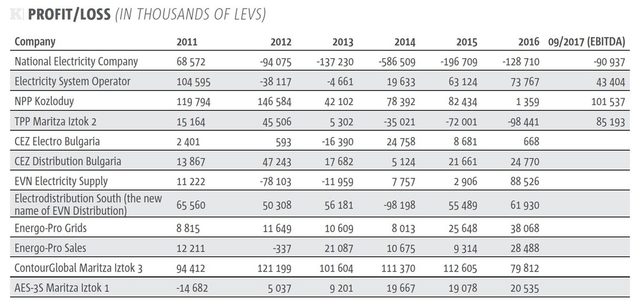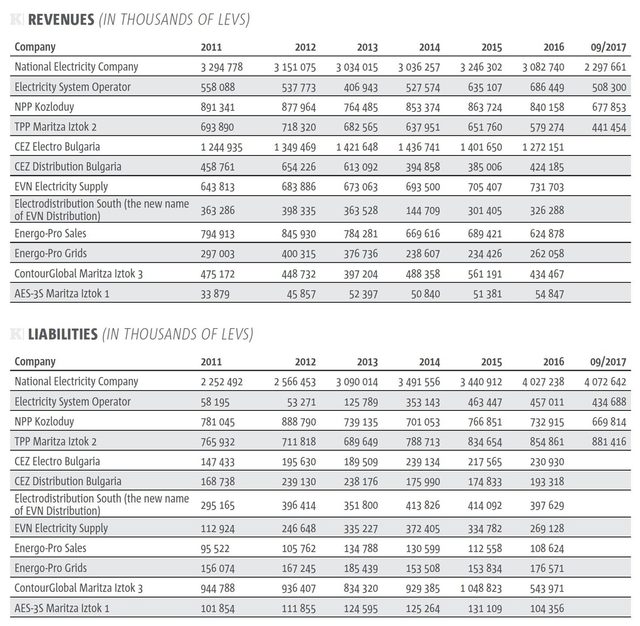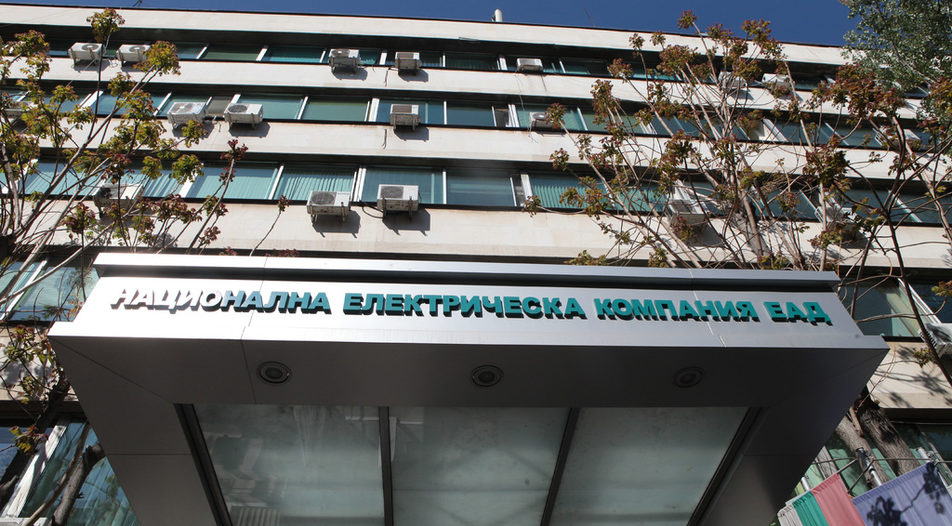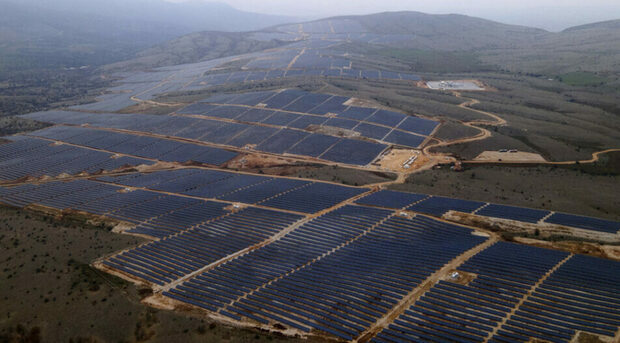While the main state-owned energy companies in Bulgaria saw their financial results worsen and in some instances swing into loss during the 2011-2016 period, the private energy companies increased consistently their profits. Despite of some signals for reversal, the trend remained in 2017, according to the third-quarter financial reports of the main energy companies (see the tables). The same applies to their liabilities: while those of the state-owned companies jumped from 3.8 billion levs in 2011 to 6 billion levs in the third quarter of 2017, the liabilities of private companies remained flat at 2 billion levs.
In short, this is the result of Bulgaria's energy policy since 2012, at least when it comes to financial results of the companies. Because of a series of ill-considered decisions such as the uncontrollable hike of green energy subsidies, the signing of long-term power purchasing contracts contracts at high prices, as well as investment into failed projects, the system is running into great deficit. On top of that, the several governments refrained from raising prices for consumers to compensate for the increasing costs.
It is the state-owned energy enterprises that suffered the most from the reforms in the sector. Paradoxically, they are much more exposed to the market forces than the majority of the private companies that have supply contracts at fixed prices. Private producers experienced serious problems in 2012-2014 when the National Electricity Company (NEK) - their contractual partner, delayed payments, but since then the situation has been improving.

Undoubtedly, NEK is in the worst financial condition. As a power supplier of the households and small businesses on the regulated market, it was forced to swallow most of the losses in the system caused by the mismatch between market prices and regulated prices. Even though the annual revenue of the company has remained almost constant (3.2-3.0 billon levs), NEK has not recorded profit since 2011. The most critical year was 2014, when the company loss widened to over 586 million levs, prompting talk that NEK was in a state of technical bankruptcy.
After emergency legislative changes were adopted, NEK narrowed its loss to 198 million levs in 2015 and 129 million levs in 2016. The provisional data for 2017 also shows continuous decline of the losses. The company continues to face challenges while servicing its suppliers and counterparties, as well as its credits from the Bulgarian Energy Holding (BEH). The liabilities of NEK increase each year (three lines above the liabilities decline) and from 2.2 billion levs in 2011, they are already 4 billion levs.

State-owned Maritsa Iztok - 2 thermal power plant has also recorded mounting losses since 2014. The company had liabilities of almost 100 million levs in 2016, mainly due to the growing expenses for carbon emission allowances. These expenses doubled in the first three quarters of 2017, compared to the same period of 2016, from 42.5 million levs to 89.1 million levs.
Against this background, Kozloduy nuclear power plant (NPP) is doing much better. With the exception of 2016, the NPP sustains high revenue levels on the back of electricity sales of on the free market, while it records losses on the regulated market. The liabilities of the company decrease.
The performance of the Electricity System Operator which runs the national grid, is also stable. In the last couple of years the company recorded increased revenue from the management of the energy system, mostly because it balanced the production of intermittent renewable energy producers.
When it comes to energy distribution and supply companies, the largest profits in the 2011-2016 period were recorded by the companies of EVN Group - 211 million levs. Second came the companies of Energo-Pro with 184 million levs while the units of CEZ Group posted around 151 million levs profit. Overall, 2015 and 2016 were the best years for the electricity distribution companies in Bulgaria even though there was no significant increase in their revenues.
Because of their lucrative long-term power purchasing contracts with NEK the two coal-fired power plants AES Galabovo ContourGlobal Maritsa East 3, both owned by US-based companies, have very good indicators. ContourGlobal made more than 600 million levs profit between 2011 and 2017, a whopping result for the cash-strapped energy sector in Bulgaria.
The predictions for a doom in the renewable sector didn't materialize either. Even though some companies have their revenues seriously hit by government's measures to reduce the expenses for green energy, non of them went into bankruptcy, although several big ones sue Bulgaria in international arbitrages.
While the main state-owned energy companies in Bulgaria saw their financial results worsen and in some instances swing into loss during the 2011-2016 period, the private energy companies increased consistently their profits. Despite of some signals for reversal, the trend remained in 2017, according to the third-quarter financial reports of the main energy companies (see the tables). The same applies to their liabilities: while those of the state-owned companies jumped from 3.8 billion levs in 2011 to 6 billion levs in the third quarter of 2017, the liabilities of private companies remained flat at 2 billion levs.
In short, this is the result of Bulgaria's energy policy since 2012, at least when it comes to financial results of the companies. Because of a series of ill-considered decisions such as the uncontrollable hike of green energy subsidies, the signing of long-term power purchasing contracts contracts at high prices, as well as investment into failed projects, the system is running into great deficit. On top of that, the several governments refrained from raising prices for consumers to compensate for the increasing costs.












